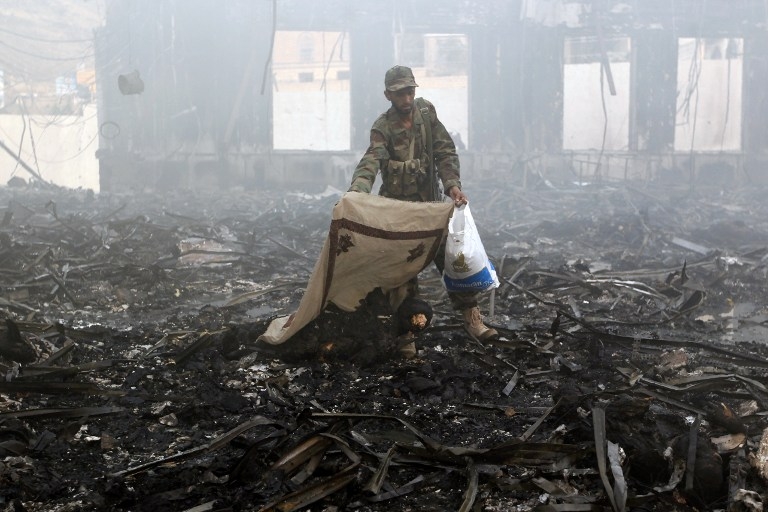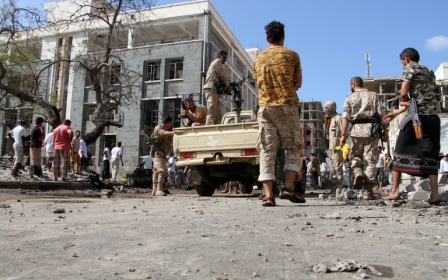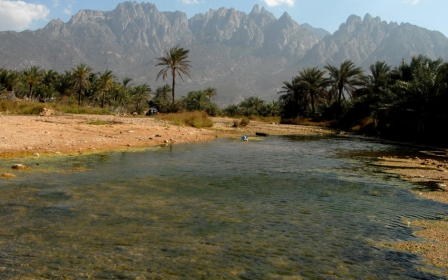US halts arms sale to Saudi Arabia over Yemen war

The White House has blocked the transfer of precision munitions to ally Saudi Arabia, amid anger about the civilian death toll from the kingdom's bombing campaign in Yemen.
"We have made clear that US security cooperation is not a blank cheque," a senior administration official told AFP, voicing concerns about how Riyadh is carrying out its war against Houthi rebels.
He said as a result of discontent, the US has decided not to move forward with sales of cases of munitions.
"This reflects our continued, strong concerns with the flaws in the coalition's targeting practices and overall prosecution of the air campaign in Yemen," the source added.
The United States will also revamp future training of the kingdom's air force to focus on improving Saudi targeting practices, a US official told Reuters.
The decision reflects deep frustration within President Barack Obama's government over Saudi Arabia's practices in Yemen's 20-month-old war, which has killed more than 10,000 people and sparked humanitarian crises in the poorest country in the Middle East.
READ: Saudi Arabia reaps what it has sowed
It could also further strain ties between Washington and Riyadh in the remaining days of Obama's administration and put the question of Saudi-US relations squarely before the incoming administration of President-elect Donald Trump, who takes office on 20 January.
Still, the decision was not the cut-off in support that Saudi Arabia's biggest critics had hoped for and much of the US military relationship will remain intact.
For example, the United States will keep refuelling Saudi-led coalition aircraft involved in the campaign, and it is not cutting off all arms sales to the kingdom. And, in a nod to Saudi Arabia's security concerns, Washington will share more intelligence on the Saudi border with Yemen.
The tipping point for Washington's ire over Yemen appears to have been an October attack on a Yemeni funeral home that killed more than 140 people.
After that attack the US announced a review to ensure "support for the Saudi-led coalition is consistent with our foreign policy goals and values."
A United Nations panel has since found that "double-tap" strike was a violation of international humanitarian law.
Experts told the UN Security Council in a report obtained by AFP that it continues to investigate whether the second air strike directly harmed medical personnel in what could amount to war crimes.
US officials are at pains to point out that today American involvement is limited.
READ: How Britain's party of war gave the green light to Saudi in Yemen
"As of today our assistance continues. It's been very limited, consisting of refuelling and limited advice on how to conduct strikes," said Pentagon spokesman Navy Captain Jeff Davis.
White House spokesman Josh Earnest said the US would not be "refocusing our efforts to support the Saudis when it comes to enhancing their border security and their territorial integrity."
"We also are going to undertake steps to refocus our information sharing."
A senior US administration official said that additional assistance would also address "training for the Saudi Air Force" specifically targeting issues.
"I think it's a signal but too weak of a signal," said William Hartung of the US-based Center for International Policy, responding to Washington’s decision. "As long as they're going to be refuelling aircraft which is central to the bombing campaign, it's hard to see that they're using all the leverage they have."
New MEE newsletter: Jerusalem Dispatch
Sign up to get the latest insights and analysis on Israel-Palestine, alongside Turkey Unpacked and other MEE newsletters
Middle East Eye delivers independent and unrivalled coverage and analysis of the Middle East, North Africa and beyond. To learn more about republishing this content and the associated fees, please fill out this form. More about MEE can be found here.




